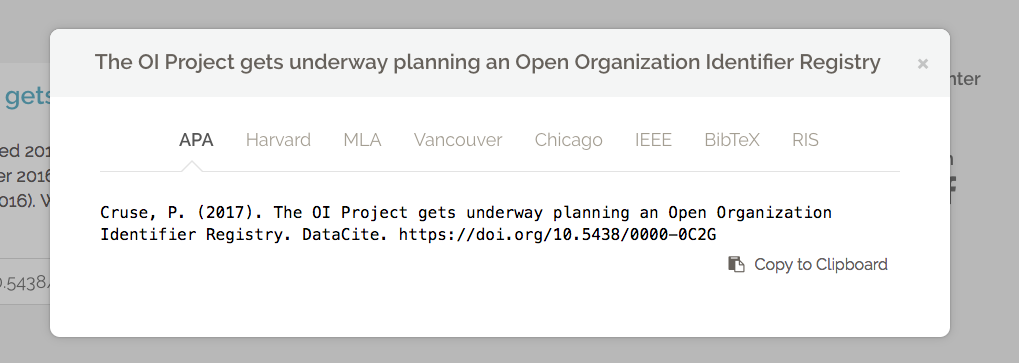
While it is a best practice for DOIs (expressed as URL) to send the user to the landing page for that resource (Starr et al., 2015), sometimes we want something else: metadata , e.g. to generate a citation, or to go to the content itself. The easiest way to do that is to use DOI content negotiation.